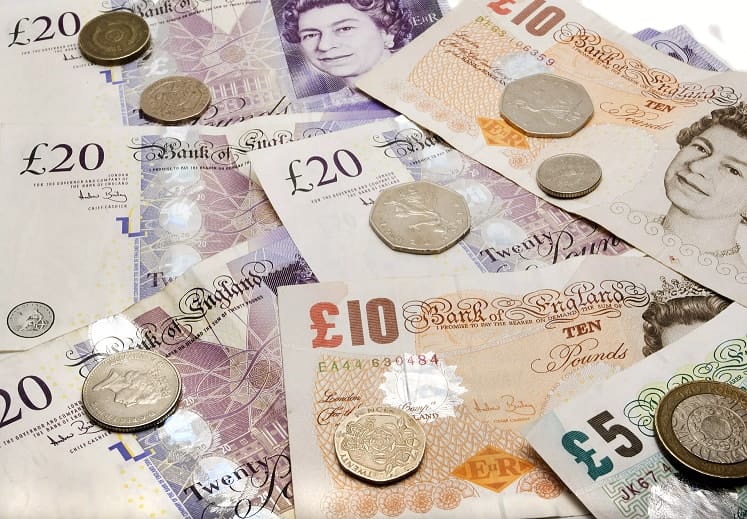In electioneering move, chancellor Sajid Javid plans to extend higher rate to ‘millennials’ too.
The national minimum wage is set to be increased in a new move to give the low-paid a post-Brexit boost, chancellor Sajid Javid has revealed.
In yet another signal that a snap election is looming, Javid told the Conservative party conference that he planned to hike the current rate of £8.21 an hour to £10.50 an hour within five years.
Crucially, the increase would also apply to over-21s and not just over-25s, a move that the chancellor said would “reward the hard work of all millennials too”.
Javid announced he was setting a new target for the ‘National Living Wage’, raising it to match two-thirds of median earnings and “giving four million people a well-earned pay rise”.
“It’s clear it’s the Conservatives who are the real party of labour. We are the workers party,” he told the conference in Manchester.
His aides claimed that the proposal would mean £4,000 a year gross increase in pay for those affected, which critics suggested would mean business being hit with a £16bn hike in wage bills.
However, analysts pointed out that the real figures was equivalent to an extra £1,400 a year for a full-time worker over-25, compared to current projections.
At present, the minimum wage is pegged to 60% of average earnings but under the new plan it would increase gradually to 66%, defined as the point at which ‘low pay’ ceases.
The current age threshold for the higher rate of minimum wage is over-25, but under the proposals over-23s would qualify from 2021 and then over-21s from 2024.
Javid’s predecessor Philip Hammond asked the US economist Arindrajit Dube to review the evidence for a wage hike earlier this summer. His report is due ‘shortly’ and the details are expected in Javid’s Budget this autumn.
Boris Johnson is determined to woo low paid workers by hiking their wages as part of a wider effort to tell Leave voters and others that there will be a post-Brexit boost to the economy.
When he was Mayor of London, Johnson introduced a ‘London Living Wage’ which was then picked up by George Osborne and rolled out as a ‘national living wage’.
Shadow chancellor John McDonnell was withering about the announcement: “This pathetic attempt at catch-up by the Conservatives will fool nobody.”
TUC general secretary Frances O’Grady added: “The Chancellor’s pre-election promise should be taken with a huge bucket of salt.
“This pledge would be overwhelmed by a no-deal Brexit. If we leave the EU without a deal, jobs will be lost, wages will fall, and our public services will suffer.”
Nye Cominetti, Economic Analyst at the Resolution Foundation, said: “The Chancellor’s announcement today to eliminate low pay by the middle of the decade is hugely ambitious, and hugely welcome.
“However, announcing the policy is the easy part. Eliminating low pay over the next five years without any significant employment effects is not without risks.”
Adam Marshall of the British Chambers of Commerce said: “Companies already face significant cumulative employment costs, including pensions auto-enrollment, Immigration Skills Charge and the Apprenticeship Levy.
“So government must take action to alleviate the heavy cost-burden facing firms, or risk denting productivity and competitiveness.”
The free-market Institute for Economic Affairs warned: “The Chancellor has further politicised wage-setting today.
“The possible dangers of a political bidding war over minimum wages are numerous, and would most badly impact the lowest-paid in Britain – the cohort of people the Chancellor says he most wants to protect.”
Since its introduction in 2016, the National Living Wage has given Britain’s workers the biggest pay rise in two decades, the Tories claim.
But Labour points to long-term stagnation in wages for millions of people since the Tories entered Downing Street in 2010.
The issue has been a key battleground, with Jeremy Corbyn pledging a £10-an-hour rate for all include workers by 2020 – years earlier than the Tory plans.
Currently, under-18s are entitled to a minimum wage of £4.35 per hour but Labour’s proposals would dramatically increase their pay to the same as other workers.
Minimum wage rates are reviewed each year by the government, on the advice of the independent Low Pay Commission, which is made up of trade unionists, businesspeople and academics.
In another bid to woo younger voters, Javid also announced a new £500m “Youth Investment Fund” to roll out youth centres and services across the country.




